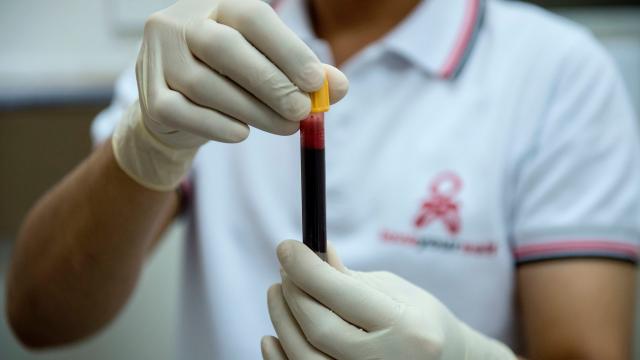Universities, drug companies, and government agencies are breaking the law and not turning in their science homework, according to a new report out Monday. It shows that many of these entities aren’t reporting the results of their research to the government’s database of clinical trials as legally mandated, while the government has done little to punish those who fail to comply.
The database, searchable by the public starting in 2008 at clinicaltrials.gov, is supposed to serve as a waystation for nearly all clinical research conducted in the U.S. involving drugs or other medical treatments (studies in other countries can be included as well). Scientists are supposed to register their work within 21 days of their study’s first human volunteer being recruited, which entails describing the design and objectives of their study. Within one year of their study’s completion, they’re supposed to update the page with their results, including any adverse events that occurred while people were on the treatment.
In 2007, the U.S. passed a law meant to widely expand the types of clinical trials that need to be reported to the database. Though the database is run by the National Institutes of Health, the enforcement of the law is supposed to be carried out by the Food and Drug Administration. In 2016, the FDA and NIH announced they had finalised rules on which studies should be reported and the hefty penalties that would theoretically come with non-compliance, which were supposed to come into effect by 2018.
But the new report from Science Magazine outlines a systemic failure across the public and private sectors in adhering to those rules. The report analysed more than 4,000 studies that would fit under the 2017 criteria and were legally meant to be reported between January 2018 and September 2019. The authors of the new report used a tool developed by researchers at the University of Oxford to track compliance, called TrialsTracker.
Collectively, the sponsors of over half these trials had failed to abide by the reporting rules in one way or another. These included prestigious research institutions such as Yale University and Harvard University, drug companies such as Sanofi, and even government agencies under the NIH umbrella, such as the National Cancer Institute.
The analysis also found 184 sponsors that had funded five or more trials. Of those sponsors, 30 had failed to report any of their studies by the expected deadlines, with the data from 67 per cent of trials not reported at all. And even when the trials were eventually reported, it took these worst offenders an average of 268 days past deadline to do so.
“The lack of urgency is really troubling,” Ben Goldacre, a UK researcher currently running the tracker at the University of Oxford, told Science.
While missing or late data might not seem like a huge problem, it matters because so much medical research these days still goes unpublished, especially if the data isn’t what drug companies wanted to see. Without transparency, other scientists are less likely to uncover potentially dangerous side-effects or crucial evidence for a drug not working as intended. This is also why it’s important for researchers to pre-report the design of a study—to stop them from changing the framing of the trial’s outcomes if the collected data doesn’t match what they expected.
There is evidence that the government’s final rules have motivated some sponsors to be better at reporting in recent years, and many of the companies and universities Science reached out to pledged to do better when confronted with the data. But the FDA told Science it won’t start to levy the fines (which can reach $US12,000 ($17,366) a day) on non-complying sponsors until more “guidance” on how these fines will be carried out is established. Nor is there any indication that the NIH will go as far as to pull funding from those not listening to them. Without more aggressive action, it’s unlikely the problem of missing data will be solved anytime soon.
“In an era when every restaurant is obliged to publish on its front door the hygiene rating in their kitchen, we’re seriously not saying whether a trial that costs millions of dollars has broken the law and its obligation to … patient participants by failing to report its results?” Goldacre told Science. “That seems like extraordinary special treatment for clinical trialists.”
